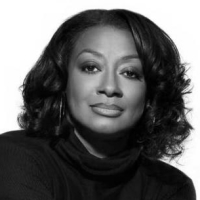When director Spike Lee publicly criticized Quentin Tarantino’s slavery-themed film Django Unchained last week, the real surprise for some was that anyone was actually shocked. As one prominent female African-American actress noted, Lee “always goes after Tarantino. So I expected that from him. I wasn’t surprised.”

Others, including African-American director Antoine Fuqua, were less charitable. “That’s not the way you do things,” Fuqua said of Lee’s two very public swipes at the Tarantino film. “If you disagree with the way a colleague did something, you call him up, invite him for coffee, talk about it. But don’t do it publicly.”
Lee (School Daze, Do The Right Thing) has long championed a more balanced view of African-American life on the big screen and has been an outspoken opponent of anyone he deemed unwilling to follow suit, including such industry power figures as Clint Eastwood and George Lucas. The New York filmmaker has been a particular—and frequent—critic of Tarantino’s work, repeatedly taking issue with Tarantino’s casual use of the “N” word in such films as Pulp Fiction and Jackie Brown.
The story of a freed slave (Jamie Foxx) turned bounty hunter on a mission to rescue his wife (Kerry Washington) from an evil plantation owner, Django Unchained features the “N” word more than 100 times.
In a recent interview with Vibe, Lee said of the film, “I can’t speak on it ’cause I’m not gonna see it. The only thing I can say is, it’s disrespectful to my ancestors, to see that film.”
The weekend before Django opened on Christmas Day, Lee bluntly reiterated his displeasure with the film on Twitter: “American Slavery was not a Sergio Leone Spaghetti western. It was a Holocaust. My ancestors are slaves. Stolen from Africa. I will honor them.”
Several African-American scholars have publicly agreed with Lee’s response to the film. But most members of the black Hollywood community have remained tight lipped and stone-faced regarding Django, which earned $15 million dollars on Christmas Day and seems a sure bet for several Oscar nods.
“I am surprised Spike commented in the first place,” said Fred Mwangaguhunga, editor of Media Takeout, the popular African-American entertainment website. “When you speak out against Django, you’re not only speaking out against Tarantino, a director who is known for hiring black actors, but you’re also speaking out against a studio which is looking to recoup the millions of dollars it put up for the film. I respect Spike for speaking his mind, but it’s like career suicide to speak out against the multiple investors and backers of this film. I don’t think it was a good idea for Spike to go there.”
One well-known African-American film actress echoed similar sentiments regarding Lee’s comments. “Whatever I thought about the film, I’d never blast Tarantino in that way,” she said. “He at least casts black women in his films, which is more than I can say for most white male directors and sometimes many black ones—I like Spike but he isn’t employing a lot of us now. Tarantino at least seems to care enough about black actors to include us in his films. Why look a gift horse in the mouth?”
“I would have had more respect for Spike if he’d attacked Spielberg for not mentioning Frederick Douglass in Lincoln,” she added. “That was a real story about a real event. Django was pure fiction—fun fiction that I kinda enjoyed in the end.”
Fuqua, director of the Denzel Washington film Training Day, chastised Lee not only for the way he attacked Tarantino but for the gist of his criticism as well. “I haven’t seen the film, so I can’t speak specifically,” he said, “but we’re supposed to find some truth in films, and if a film is set in the 1850s, you’re going to hear the word n——-, because that’s the way they spoke then.”
Overall Lee’s well-publicized attack on Django seems to have done little to sway black Hollywood’s reaction, and it has had small impact on ticket sales, even among black moviegoers, who have composed 30–40 percent of the film’s audiences since it opened, according to the Hollywood Reporter. The film earned more than $60 million in its first five days in release and continues to trend high on Twitter.
“If anything, Spike made me want to see it,” said Hammond Jones, 19, of Macon, Ga. “I’d heard about the film but wasn’t rushing out until Spike made it seem like a big deal. I thought it was going to make black people look bad, but it didn’t. A black man was the hero. I don’t know what Spike was talking about. Me and my boys loved it and are going to see it again this weekend.”






